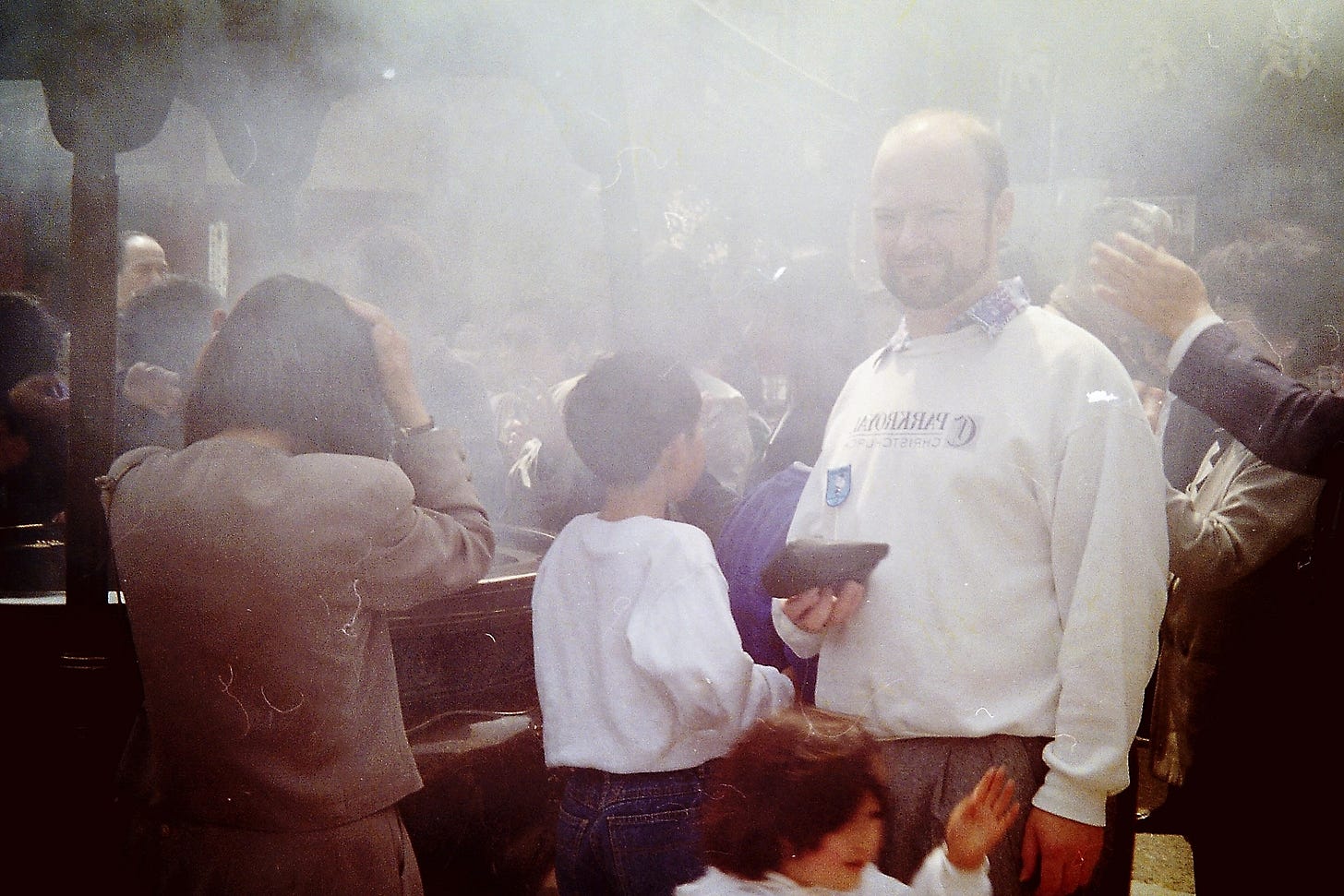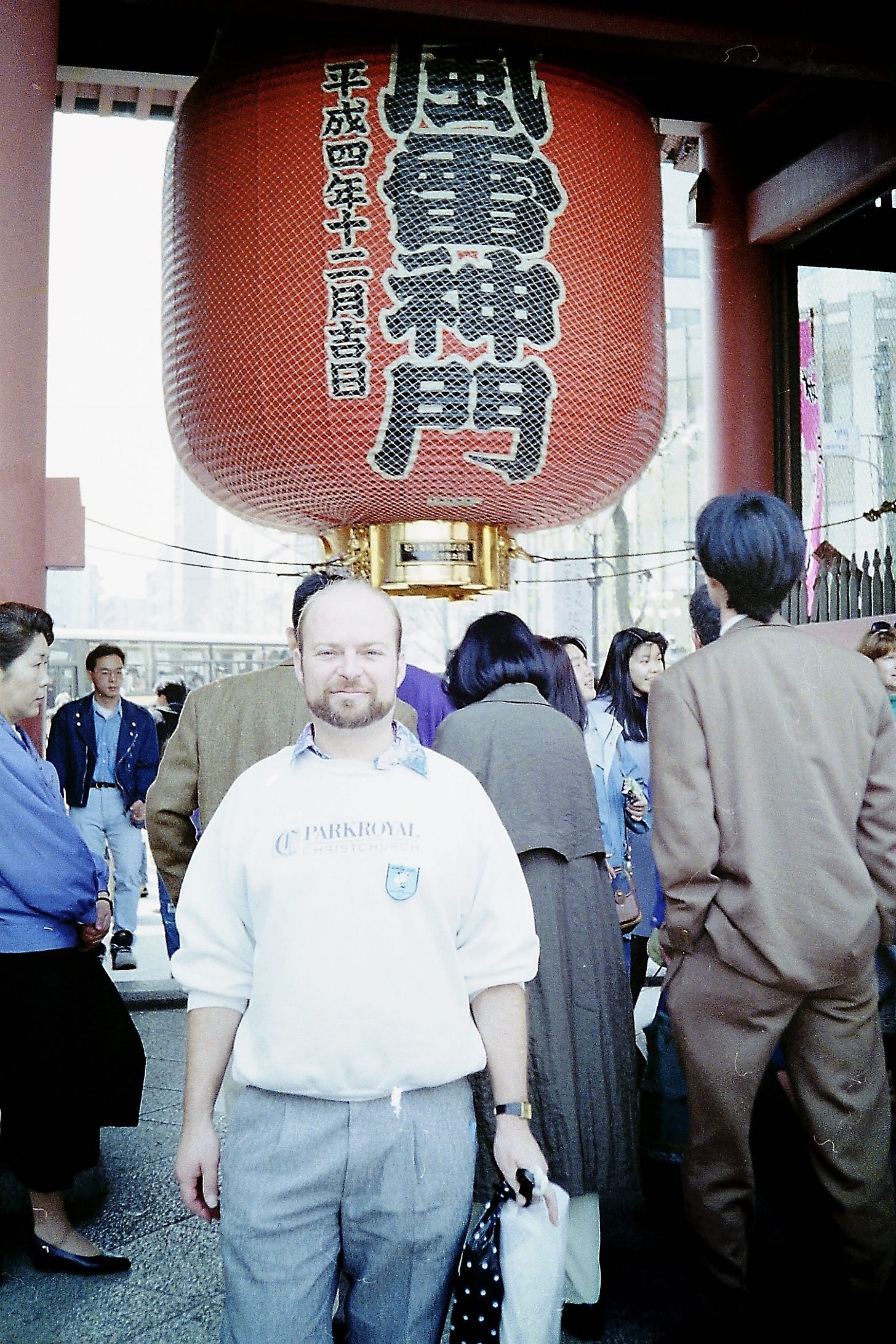Me to Casio: Your firmware needs to be more user-friendly
Casio to Me: You need to find better customers
After my first visit to Japan, I recognised that I needed to learn a lot about the country, and the people. I mentioned this in a previous post. I went to night school and started learning the language. As a compulsive learner, I bought several books. Some I bought in Japan, and some on Amazon. I read about the 100-Year War. I read books on culture and diversity. I learned that they do think differently on many levels, some seeming contradictory to us, although not to them. I learned that as a westerner I would sometimes have to just accept things and not try to understand them.
A valuable lesson I got from one of my uncles when I lived in Holland, was the difference between a tourist and a traveller. To paraphrase: Tourists go to another country and compare it, often critical to their own country. They buy souvenirs, take photos to see where they had been, and have a superficial experience. Travellers, on the other hand, explore beyond the lens of a tourist. They go to small places, they spend time with the people that live there, learning about them, enjoying their culture and for a time perhaps become part of it. Where the tourist comes home with some placenames to drop and some souvenirs, the traveller returns home, often with new lifetime friendships.
In business, many people went to Japan to trade and struggled, particularly Americans in the age of globalisation. They tried to get the Japanese to do business on their terms, rather than developing a partnership, which was my model. In fairness, the path was made easy for me by my predecessor, Lyn who, while he didn’t learn the language, was also an empathetic, intelligent man, who focussed on the relationship as much as the trading. He had already made friends with our key contact and his wife.
I explored the country and the culture. I experienced a tea ceremony with a real geisha, which was an honour because there are very few left today.
I went to temples and inhaled lots of incense.
I went shopping. My favourite place was Akihabara, being a geek.
I don’t normally like to shop, but when it comes to electronics and music, I’m in there. My boss had given me a massive 200 Watt Pioneer stereo system for Christmas one year, with all the extras from Karaoke to a laser disk player. You couldn’t buy laser discs in New Zealand, so on every trip to Japan, I bought one or two. On this trip, I bought the movie The Commitments. It’s one of the few movies I have watched many times. The story was OK, but the music was great. I’m sure you’ll remember this scene. They brought Mustang Sally to a new audience.
If you have never seen it, do yourself a favour. You can watch it online. Crank the sound up.
But I digress while setting the scene. So back to business in Japan. I was going to challenge Casio many times. They were equally going to challenge me. We would all be winners in the final analysis.
We were doing really well distributing Casio cash registers in Australia and New Zealand. They were very well engineered, and manufactured, especially when they were still made in Japan. However, a lot of their functional capability was limited. The more sophisticated they became in functionality, for example, PoS systems for hotels, bars and restaurants, the more rigid they became in the way you had to process transactions.
For example, if you hit a button in the wrong sequence while ringing up a transaction, an audible alarm would sound and it wouldn’t stop until you hit a particular button. If you forgot what button that was, it could go for a while. Retail staff, especially when they were training in a busy bar would be intimidated by customers and staff looking up at them, while there was a queue of people waiting for a drink.
I had raised these issues on many trips, and the response I got when I asked if they could make program changes to their firmware was that they knew what they were doing, nobody else was complaining and I should find better customers.
I couldn’t believe that nobody else was complaining, but my complaints were falling on deaf ears. If you haven’t figured it out yet, I am a problem solver and I don’t give up easily, especially when I feel my argument is important. Together with my awesome teams in New Zealand and Australia, we were getting amazing market share. In hospitality, for example, we had a 70% market share and there were some great brands like Sharp, TEC and Omron fighting for the remainder. But we had to maintain that.
I asked for contact names of other Casio distributors around the world, thinking I could see how they got around some of the challenges. The response from the Export Manager in Shinjuku was “I don’t think so.”
On the plane flying home, looking down at the clouds, I decided to try a different tack.
I got together with my colleagues in Sydney and started building a list. I then started ringing people in England, France, Israel, Dubai and other countries, introducing myself and asking if they had any problems with their Casio firmware. I had to laugh with the replies I got. Everyone had been told the same thing as me, that “Nobody else is complaining”.
I mooted developing a group independent from Casio. We were all exclusive distributors in our countries. The premise was that we would communicate with each other and where possible try to solve some of the problems, and where necessary, we would approach Japan’s R&D with a wish list. It very quickly became a big list.
Several of the distributors were software developers, mostly developing back-end systems to talk to the cash registers. We had a great team in Sydney doing the same. We had developed systems for inventory management, and reporting, and had interfaced with a few leading business accounting applications.
I suggested we formalise the relationship, between distributors and the Casio World VAR Association was born. When I told Casio what we were doing, they were pretty angry with me. My next visit to Tokyo started off pretty tense. I had pissed off people in management right up the ladder, and the next morning a delegation of managers was going to talk to me, up in the tower of the Sumitomo building.
I had prepared for this. I knew it was coming, and had some statistics for them, relating to problems and opportunities. I was able to show them that their limited thinking could cost them market share, and limit their growth potential, but if they played ball, the opportunities were huge.
For example, one of the requests they had turned down, which was requested in several European countries was a ‘training mode’. The concept was that the cash register did everything it was supposed to do in training mode, but wouldn’t record the transactions as part of the taxable sales.
The reality was that in several countries such as Greece and Russia, taxes were high and they wanted this functionality to be able to avoid paying as much tax as they should. Japan wasn’t going to be seen to provide this capability. It was unethical. We explained that it was just a training mode and that when a system is in place in a bar or shop, and someone in training needs some practice, you can’t do a hard reset before and after to delete all the practice transactions. If some retailers abused that functionality, to cheat on their taxes it was their misuse of the technology, not the fault of Casio.
Casio didn’t have the resources to do that, and the long and short of it was that Casio wanted to join our group, and make it part of their business so that they could control it. We stood firm and said we were separate from them, but we all had a dog in the fight. It was ultimately that if Casio stayed number one, so would our businesses. We weren’t working against them. In addition to that, we had to be able to interface devices to EFTPOS, and locally supplied peripherals like displays, bar code readers, and kitchen printers.
Two big things came as a consequence of my agitation. First Casio R&D didn’t want to do the fixes or modifications, but they agreed to our suggestion that we could do it for them. They then contracted our Sydney team, to bug test and modify their code, not just for our market Downunder, but for the world. This opportunity created a new revenue stream for our business, contracting to Japan, and we got a better product.
When Casio found out that we were planning to hold a meeting of Casio distributors from around the world, they decided that if you can’t beat them, you need to find other ways to make sure we were all on the same page.
They came to the party and hosted our first conference, which was in London. Not only did they host it, but they also paid for our flights and accommodation. It was great for all of us. We went from strength to strength, and our markets grew from basic systems to sophisticated scanning systems. We would have conferences in many countries around the world, and they contributed in part to all of them.
It did mean a week each month in Sydney to go with the rest of my travel, but it was well worth it.
The end result? We didn’t look for better customers, we helped get a better Casio, and an awesome VAR network. It felt like I might have burned some bridges, but when I left the company, I got emails from all over the world. But the one that I most appreciated was from the head of International Marketing, who said that I was his best friend outside of Japan.
I’ll leave the final word to The Commitments.
#Casio #Japan #Language #InternationalBusiness #PoS #TheCommitments #MustangSally







They owe a lot to you!!
Also loved the travelers vs tourist idea. I think I am a traveler, who at times enjoys being a tourist too.
What a ride! My experience with Casio is limited to their calculators and their simple wristwatches. I still have a basic watch that’s running well the past 7 years. I don’t have the heart to replace it!